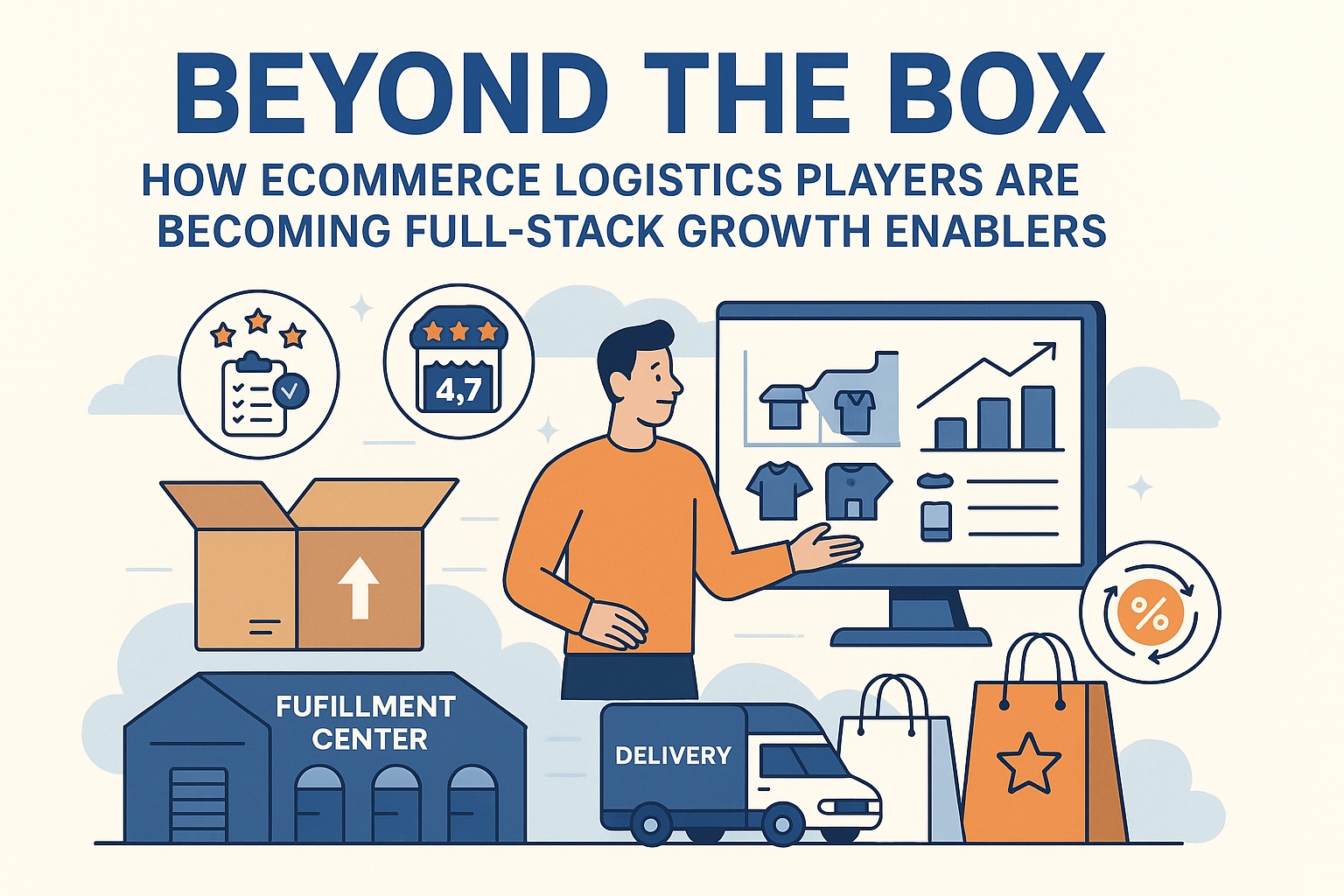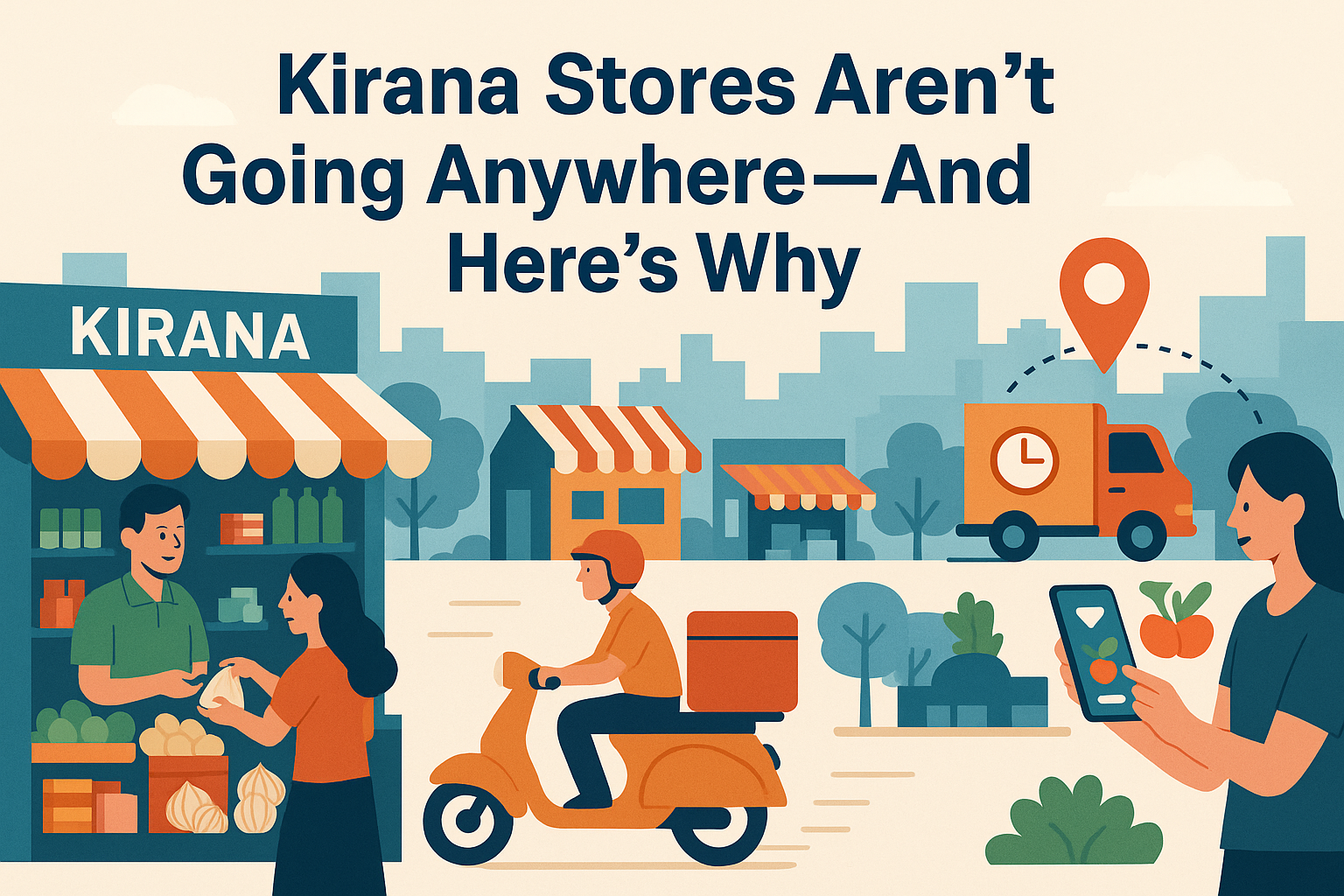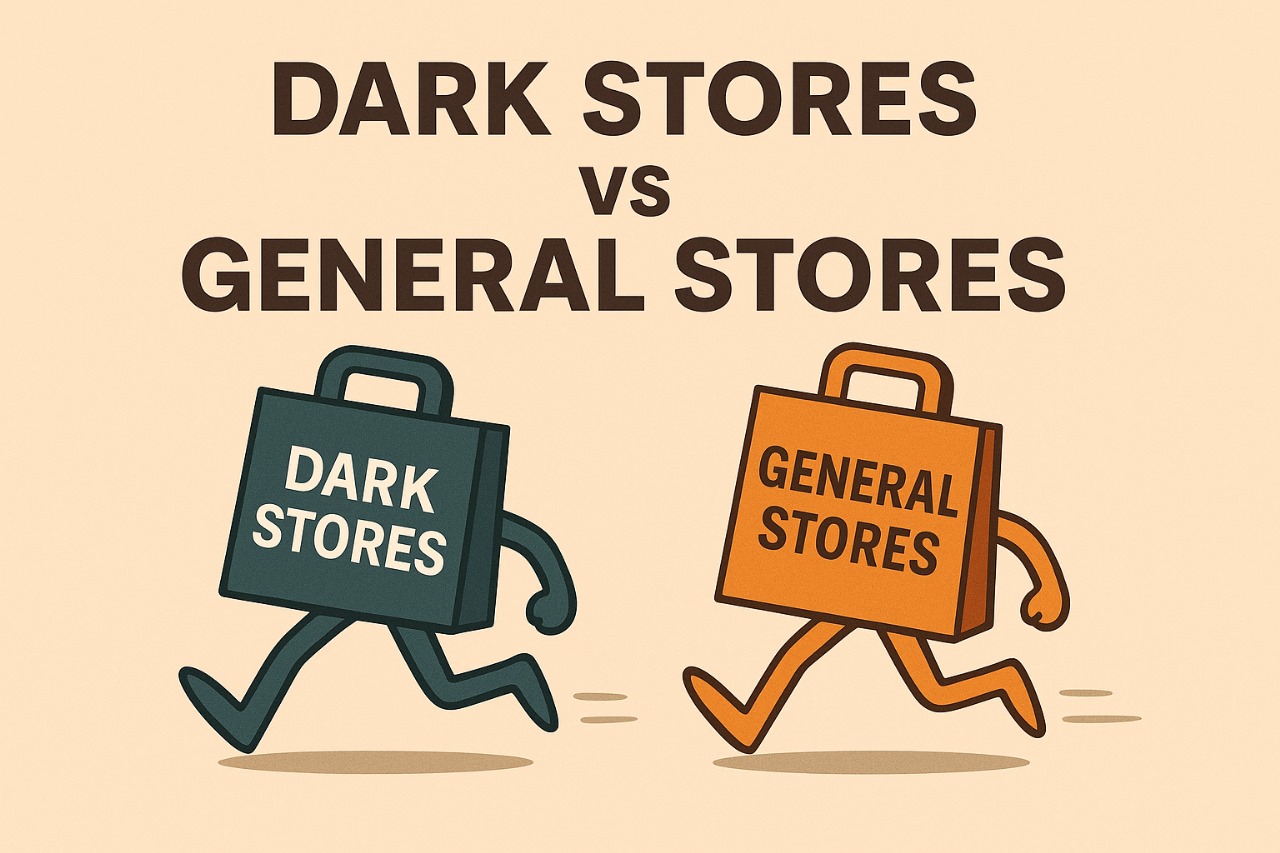Beyond the Box: How eCommerce Logistics Players Are Becoming Full-Stack Growth Enablers
In the early days of eCommerce, logistics meant one thing: deliver the box, and do it fast.
Speed was king. Whoever got your product from warehouse to doorstep the fastest, won.
But today, logistics isn’t just about moving boxes—it’s about moving businesses forward.
As D2C brands scale and online marketplaces become more competitive, a new breed of logistics players has emerged. They don't just deliver shipments—they deliver growth. These are full-stack enablers, quietly powering some of the biggest success stories in the eCommerce ecosystem.
The Shift: From Delivery Partner to Business Backbone
For years, logistics was treated as a post-checkout function. But now, brands are turning to their logistics partners for pre-sale, sale, and post-sale support—seamlessly integrated into the supply chain.
The best logistics providers today are not just offering transport—they're offering a platform: An operating system that helps brands manage SKUs, accelerate conversion, and create differentiated customer experiences.
The Rise of Value-Added Services (VAS)
Here's how eCommerce logistics is transforming into a value chain of its own:
1. Cataloging & Photography
The first battle in online selling is getting discovered—and that begins with great product listings. Logistics partners like Shiprocket and Pickrr now offer in-warehouse cataloging and photography setups, ensuring that every SKU is marketplace-ready.
• Clean images, compliant descriptions, keyword-optimized copy—all while SKUs are being received or stored.
• Cuts down time-to-list by days, sometimes weeks.
2. Kitting, Bundling & Custom Assembly
Whether it's influencer drop kits, festive combos, or gift boxes—brands often need customized fulfillment. Leading 3PLs now support:
• Pre-shipping kitting and assembly.
• Subscription box builds.
• Personalized packaging at the last mile
This capability is especially critical for D2C brands running marketing-led promos, where brand experience is non-negotiable.
3. Inventory Intelligence & SKU Optimization
Players like Increff go deeper into inventory data—offering brands insights on:
• What SKUs move faster in which locations.
• Which ones should be marked for liquidation.
• What can be clubbed for better AOVs or conversion.
This SKU intelligence enables smarter warehousing, zoning, and even demand forecasting.
4. Marketplace & Payment Reconciliation
With brands selling across Flipkart, Amazon, Myntra, D2C websites and WhatsApp—tracking receivables, returns, commissions becomes a nightmare.
• Integrated dashboards with marketplace APIs.
• Real-time reconciliation and dispute management.
• Automated GST and invoice generation.
What used to be a founder’s side hustle has now been productized by logistics partners.
5. Return Management & Refurbishment
Reverse logistics is expensive—and a bad experience here can tank customer LTV. New-age partners now offer:
• Return QC at warehouse entry.
• Grading and repackaging for refurbished resale.
• Reason tagging to reduce NDRs and identify patterns.
This ensures more returns are salvaged rather than scrapped—driving margin recovery.
Why This Model Works
The logic is simple: eCommerce brands today want to focus on growth, not grunt work. They want to outsource the operational mess—without losing control of the customer experience. By embedding deeper into the brand’s lifecycle, logistics players are:
• Reducing CACs (through faster cataloging).
• Improving retention (through better delivery experience).
• Boosting margins (via smarter returns and inventory use).
The more value a logistics player can add, the stickier they become in the brand’s stack.
In a world where delivery timelines are increasingly commoditized, it’s everything else around logistics that builds loyalty.
• Pre-sale: Are your products listed well and discovered fast?
• During-sale: Can you offer unboxing delight, personalization, or speed of delivery?
• Post-sale: Do your returns work as smoothly as your checkout?
The answer to each lies not with your product team—but often, with your logistics partner.
In today’s eCommerce game, logistics isn’t the backend—it’s the brand experience. And the best logistics providers aren’t just carriers anymore. They’re incubators in disguise. — Samarth




